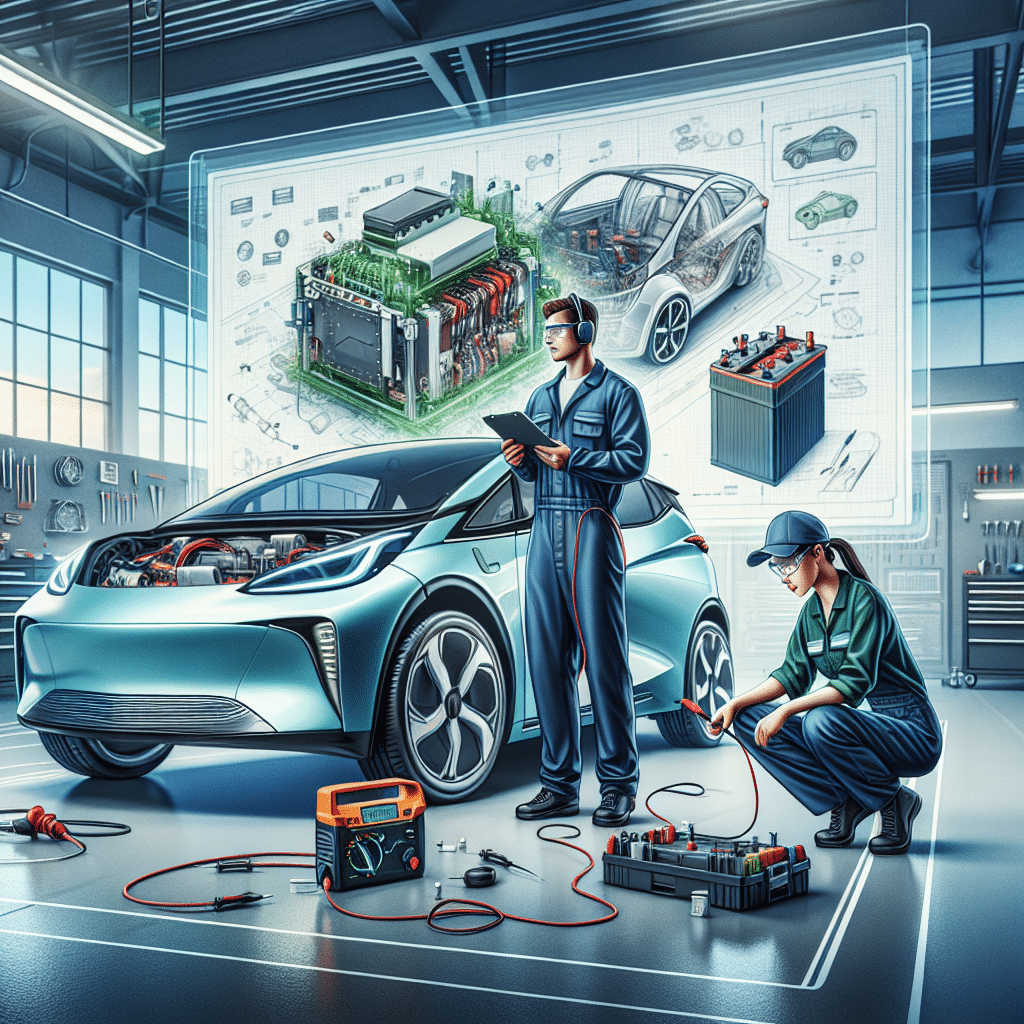Understanding Electric Vehicle Battery Maintenance
Electric vehicle (EV) batteries are fundamental to the performance and longevity of your vehicle. Proper maintenance can enhance battery life, ensure optimal performance, and extend the range of your EV. Here are essential tips for maintaining your electric vehicle battery.
1. Monitor State of Charge (SOC)
Maintaining the right State of Charge (SOC) is critical. Ideally, keep your battery charged between 20% and 80%. Charging practices that involve full discharges or constant charging to 100% can stress the battery, reducing its lifespan. Consider using a smart car charger that can help manage SOC for long-term battery health.
2. Charge Regularly
Frequent charging helps maintain a balanced battery. It’s comparable to using a smartphone; frequent top-ups keep the battery healthy. If your driving habits allow it, make it a point to charge your vehicle daily or whenever you can, rather than waiting for the battery to deplete.
3. Use the Right Charging Equipment
Quality matters when it comes to charging. Always use the charger provided by the manufacturer or a reputable third-party charger compatible with your vehicle. Avoid cheap, unverified options that may not deliver the optimal voltage and current, which can damage the battery over time.
4. Optimize Charging Environment
Temperatures can significantly affect battery health. Charge your EV in moderate conditions if possible. Extreme heat can lead to battery degradation, while cold temperatures can reduce charging efficiency and range. If you live in an area with extreme conditions, consider installing a garage charger to mitigate temperature impacts.
5. Avoid Fast Charging
Frequent use of fast chargers can lead to accelerated battery wear. While convenient, fast charging generates heat, which is detrimental to battery chemistry. Use fast charging selectively, reserving it for long trips or emergencies, and opt for standard charging during regular use.
6. Protect Against Extreme Temperatures
Extreme temperatures can degrade battery performance and longevity. If you live in a region with extreme heat or cold, consider installing a battery thermal management system, if available, or utilize your EV’s climate control features to precondition the battery before charging, improving efficiency.
7. Regular Battery Health Checks
Just as you would regularly check the oil in a combustion vehicle, keep an eye on your EV battery’s health. Many EVs provide diagnostic tools or alerts regarding battery condition. Pay attention to changes in range, charging speeds, or notification warnings, as these might indicate a need for professional evaluation.
8. Keep Your Battery Clean
Dirt and debris can accumulate on the battery terminals, interfering with performance. Regularly inspect and clean the battery terminals, ensuring they are free from corrosion or oxidation. Utilize a damp cloth and a mild cleaning solution to clean the area safely.
9. Update Software Regularly
Manufacturers often release software updates that can optimize battery management systems (BMS). Regularly check for updates through your EV’s app or the manufacturer’s website. Keeping the software current ensures that your vehicle runs optimally, enhancing efficiency and battery health.
10. Driving Habits Matter
Your driving style can impact battery health. Smooth driving with gradual acceleration and deceleration minimizes energy consumption. High speeds and aggressive driving deplete battery charge quickly and cause unnecessary strain. Develop a gentler driving style to maximize efficiency.
11. Plan Your Trips Wisely
Planning your journeys to optimize battery usage can lead to significant long-term savings. Identify charging stations along your routes and consider the most efficient routes, thereby reducing the strain on the battery and enhancing its longevity.
12. Understand Regenerative Braking
Your EV likely features regenerative braking, which uses the vehicle’s movement to recharge the battery. Familiarize yourself with this feature to enhance your energy conservation during driving, potentially extending your driving range and reducing the need for frequent charging.
13. Avoid Deep Discharges
Avoid letting your battery drop below 20%. The stress caused by deep discharges can reduce its capacity over time. Instead, aim to recharge before it gets too low. Establishing this habit will help maintain your EV’s performance.
14. Battery Cooling Systems
EV batteries can generate heat with use, and many come equipped with cooling systems. If your vehicle offers battery cooling, ensure it’s functioning correctly. Regular maintenance will help keep your battery temperature within safe limits.
15. Storage Considerations
If you must store your EV for an extended period, state-of-charge is key. Store the battery at a charge level between 50% and 70%, ideally in a climate-controlled environment. Periodically check the charge level and recharge if it falls below 50%.
16. Warranty and Manufacturer Guidelines
Always familiarize yourself with your battery warranty. Understanding what is covered can save you money in the long run. Follow manufacturer recommendations for maintenance and care closely, as they are tailored for optimal performance and longevity.
17. Seek Professional Help When Needed
If you observe irregular behavior in your battery performance, don’t hesitate to seek expert help. Many dealerships offer diagnostic services that can identify underlying issues affecting battery health. Investing in a professional assessment may prevent more costly repairs down the line.
18. Join EV Communities
Engaging with other EV owners can provide valuable insights into battery maintenance and best practices. Online forums or local EV clubs are great resources for sharing experiences and tips on optimizing battery life, charging, and general vehicle maintenance.
19. Educate Yourself
Stay informed on new battery technologies and maintenance practices. As the EV industry evolves, new tips and strategies may emerge that can enhance battery health and longevity. Follow industry news, blogs, and publications to keep yourself updated.
20. Eco-friendly Disposal
When it finally comes time to replace your EV battery, ensure it is disposed of responsibly. Many manufacturers provide recycling programs. Proper disposal is not only environmentally responsible but can often yield a small credit towards a new battery.
By following these tips, owners can ensure their electric vehicle batteries remain in optimal working condition, contributing to the vehicle’s overall efficiency and extending its usable life.
